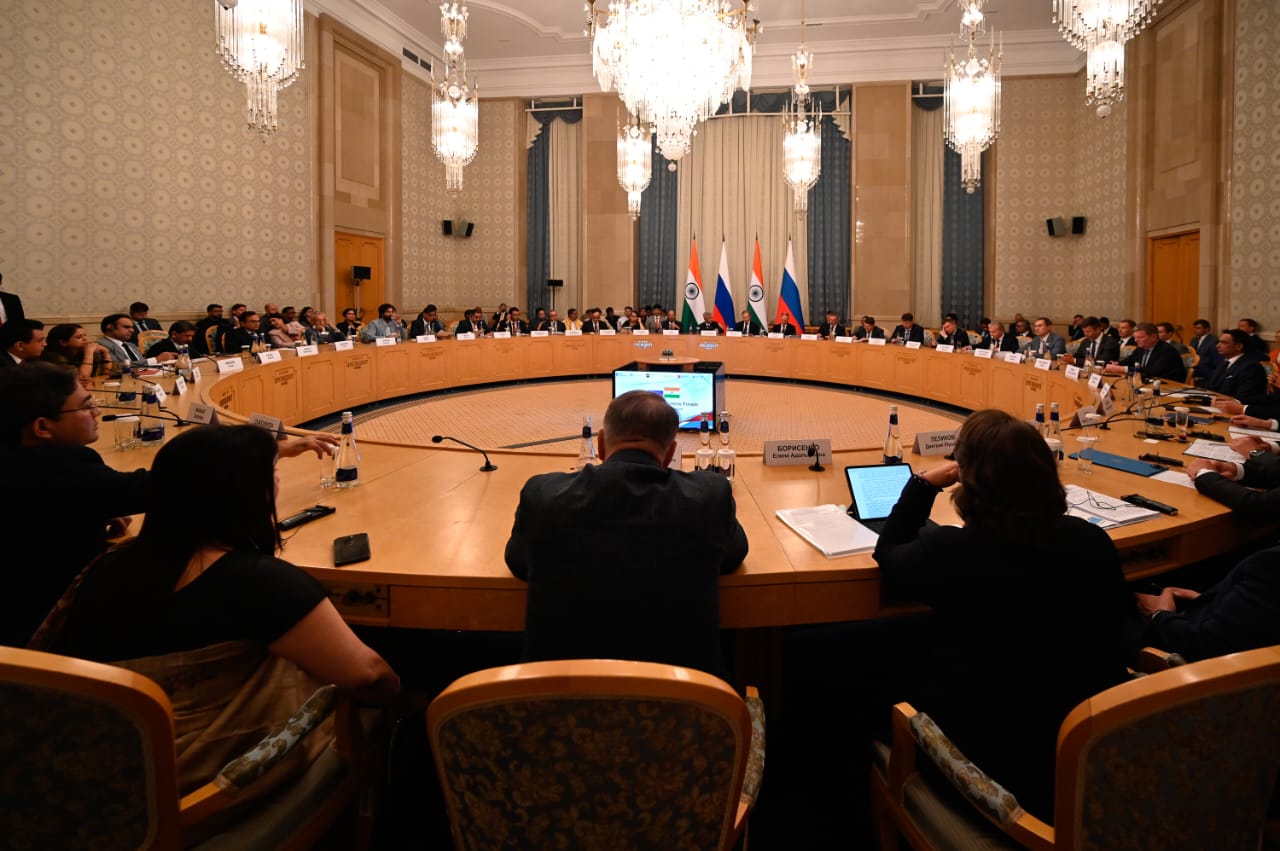Foreign Minister Jaishankar Explains How India Is Navigating U.S. Tariffs, Russian Oil, and Trade Red Lines on Its Own Terms
India has reaffirmed its position that any trade deal with the United States -- including decisions around purchasing Russian crude oil -- will be governed strictly by national interest. This comes amid heightened pressure from the Trump administration and an imminent escalation of trade tensions, with 50% tariffs on Indian exports to the U.S. set to take effect on August 27.
 |
| Image Source: Ficci_India |
The Trump administration claims these purchases are indirectly supporting the Russia-Ukraine war -- a position India has firmly rejected as “unfounded and coercive.”
At the Economic Times World Leaders Forum in New Delhi, External Affairs Minister Dr. S. Jaishankar and Commerce Minister Piyush Goyal both made clear that India would not be swayed by geopolitical pressure, and would continue to act in line with its own strategic and economic priorities.
In a pointed rebuttal to American criticism of India’s oil imports from Russia, Dr. Jaishankar said, “It’s funny to have people who work for a pro-business American administration accusing others of doing business. If you don’t like it, don’t buy [our oil]. Nobody forces you to.”
He also noted that India's purchases of Russian crude during the oil price surge in 2022 played a stabilising role in the global energy market.
“Yes, it is in our national interest, but it is also in the global interest,” he added, stressing that India's actions helped cool volatility at a time of international concern.
Jaishankar’s recent visit to Moscow, which followed the India-U.S. leadership meeting in Alaska, focused on strengthening annual bilateral cooperation with Russia.
“We’d like to increase trade with Russia,” he said, reiterating India's position that it seeks a resolution to the Ukraine crisis through peaceful dialogue.
Commerce Minister Goyal echoed the sentiment, stating that while India’s relationship with the United States is “very consequential,” its trade policy is grounded in national priorities and not shaped by optics.
“Geopolitical considerations or wanting to look good will never drive India's trade decisions,” he said. “What’s good for the country and the industry, that’s what drives us.”
Goyal stressed that India remains open to mutually beneficial trade partnerships and highlighted the importance of protecting domestic sectors such as agriculture and small businesses during any negotiation process.
“We have red lines and we have to be clear about them,” Jaishankar added.
Speaking with @pranabsamanta at the #ETWorldLeadersForum@EconomicTimes
— Dr. S. Jaishankar (@DrSJaishankar) August 23, 2025
https://t.co/6rSbrBqRCI
Despite the strain in negotiations, Jaishankar noted that India and the U.S. maintain open communication channels.
“We are two big countries, we need to have conversations and we will see how it goes. It’s not like we never had issues before,” he said, emphasising that other aspects of the bilateral relationship remain robust.
On broader strategic alignments, Jaishankar asserted India’s multi-vector approach. “The Quad is still the Quad and BRICS is still BRICS.
Countries like us should not be forced to make binary choices,” he said, underscoring New Delhi’s independent foreign policy.
Indian industry, meanwhile, remains resilient. According to Goyal, companies are confident about navigating the trade headwinds and even surpassing last year’s performance.
“There are different ways in which we can ameliorate this current situation, until we are able to come to a settlement,” he said, suggesting pragmatic adjustments in procurement and supply chains as part of India’s strategy.
